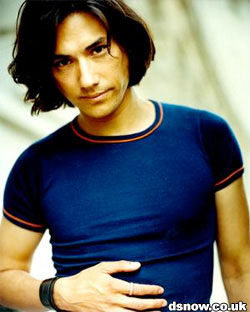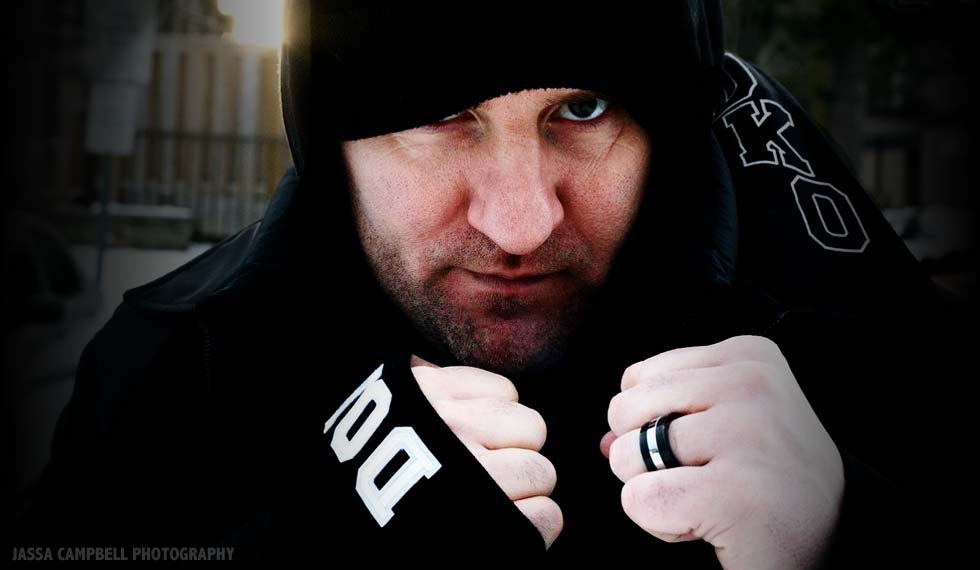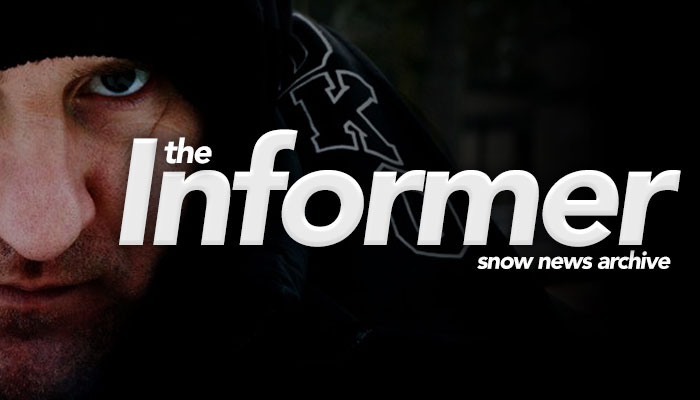 When Moist frontman and lead scribe David Usher first decided to venture off into temporary solitude to try his hand at the ever-dubious solo album, the result was 1998’s aptly-dubbed Little Songs.
When Moist frontman and lead scribe David Usher first decided to venture off into temporary solitude to try his hand at the ever-dubious solo album, the result was 1998’s aptly-dubbed Little Songs.
Full of stripped down, acousticized compositions, it was intended to be something of a discreet outing for the erstwhile star, nothing more than a compact, no-frills vehicle for another gush of Usher’s seemingly endless wealth of songs … That was the plan, anyways.
Alas, a lot can happen in three years. Doubly so if you’re as creatively charged as Usher seems to be. After Little Songs exceeded expectations (and spawned a few modest radio successes in the process), Usher promptly retreated back into the studio with his bandmates to pen Moist’s third album, 1999’s Mercedes Five And Dime. After the rigours of the ensuing tour subsided, Usher again found himself with some spare time. But, rather than doing the natural thing (ie. bumming off to some tropical island for a prolonged rest), Usher did the unspeakable. He called up a few of his friends (a veritable who’s who of major players from the Canadian music industry) and charged back into the studio to commence work on his second solo album.
The resulting effort (titled Morning Orbit) is a distinct departure from its predecessor, marked mainly by the noticeable shift towards a bigger, brassy sound.
Little Songs sounded like it was recorded on a four-track in somebody’s basement; this one sounds… expensive.
‘The first bunch of songs were very much like little songs and I knew I didn’t want to do that [again],’ Usher says. ‘To make it interesting, you want to be banging on something slightly different. I found a direction – somewhere along the way you find songs that feel like they’re pointing you in a different headspace and you follow that train. You sort of feel out where you’re going, and there’s sort of a turning point somewhere.’
For Usher, the turning point came in the form of technology – the self-confessed computer junkie derived a tremendous deal of inspiration from the freedom that came with the ability to sample, loop and sonically recut his rough compositions. ‘I’m very into computers and I’m very into the technical side of music in terms of playing with technology,’ he agrees. ‘I don’t have the kinds of problems with drum loops and samples that some people have – I like to make sure that I keep the soul of the song. Making sure you’re not losing that human aspect that makes it interesting. But I like the blend a lot.’
The irony here is that a great deal of Morning Orbit’s lyrical bent seems to be focused on technology’s role in contemporary society. He might not be championing Ray Kurzweil as an influence, but Usher is clearly trying to make an effort to understand how it all fits together.
‘I look at these things personally – the way I sit within the new landscape,’ he offers. ‘I was listening to somebody on the radio and he was talking about dropping one drop of dye into a barrel of water – it changes the entire chemical composition of the water. It’s the same with technology – we sort of dropped technology onto the landscape. We’re living within it, but I don’t think we’ve really taken any stock in how it’s changed our dynamic as humans and our interactions. I’m a big lover of technology. I’m addicted to it just like everybody else, but I spend a lot of time wondering if it’s giving me a better life or a worse life. Just because you love it doesn’t mean it’s good for you.’
‘But then,’ he laughs. ‘I’m the human of large extremes. I’ll eat healthy and do yoga for a week and then I’ll drink vodka and eat pizza for the other week – that’s the way I live. It’s the same way with technology. I’m not sure that it’s making us communicate better, despite the fact that the Internet is the great equalizer and the great informer (to quote Snow). There’s nothing egalitarian about it. Most of the world doesn’t have it. And it doesn’t in any way make people more equal – it allows us to shop easier. That’s a powerful tool. And it allows us to do book reports easier. But I don’t know whether it inspires our creativity or feeds us at all.'”
For that, Usher went with the tried and true technique; genuine human interaction. Morning Orbit’s guest appearances list reads like your average seating plan for the Junos – Jeff Martin (Tea Party), Jag Tanna and Bruce Gordon (I Mother Earth), Gord Sinclair (Tragically Hip) and ragga-popster Snow all pop up in different places.
According to Usher, Morning Orbit was never meant to be perceived as ‘David Usher And Friends’ – it just worked out that way. ‘As I went along I just kept finding places where I thought it’d be really interesting for different people I know to play,’ he sighs. ‘The people I happen to know and like are people that I pass on the road and I’ve known for a long time. It’s a strange thing. You’re making a solo record so you can make all the decisions, but at the same time you’re still collaborating with someone. When you bring somebody in, they usually play something different and you follow wherever the inspiration leads.’
‘I think in the overall picture of what it was going to be, I don’t think I was trying to make the Ringo Starr All Star Record,’ he laughs. ‘I don’t generally have those master plans in mind – you just sort of bump your way along and hope it’s going to work out in the end.’
The Snow appearance, for example, came to pass after a chance encounter through a mutual friend. After Usher caught his performance at a function, he found himself wondering if they might be able to collaborate on something. ‘I saw him with a couple of instruments and someone doing beat box at a friend’s party,’ Usher recalls. ‘He’s got an incredible voice and he’s a talent. I just wanted to hear him with different backbeats. The point is that you’re trying to experiment with things that aren’t natural – that’s what experimentation is. I think sometimes people classify [my] record as more mainstream because I do things like that. But that’s not what people naturally think of, so maybe that’s what the alternative is.’
Mainstream or not, Usher certainly has the numbers on his side. There’s even an outside possibility that this solo record could eclipse the last Moist record in terms of overall sales in Canada. In spite of the perverse irony of it all, it’s not a prospect that Usher seems particularly pleased to consider.
‘The best way to deal with that is to not think about it,’ he maintains. ‘I’m focused on this record and touring this record so I make a conscious effort not to think about anything else. You get overwhelmed really easily – it messes with your head and f**ks you all up.’
On the contrary, Usher has gone out of his way to include some fellow bandmates in his solo exploits; both keyboardist Kevin Young and bassist Jeff Pearce are prominent figures in Morning Orbit. It’s a move that isn’t as self-defeating as it might look.
‘It’s very different just because the decision making process is so different from being in a democracy,’ Usher explains. ‘You get to bang all your ideas through this way – you just do what you want to do, and it just makes a different record. We’re very tight as friends; they’re talented guys and it’s natural for me to want to work with them on the record as well. Kevin and Jeff are going to tour with me.’
In the meantime, Usher is intrigued by the public reaction to this more considered record. ‘[Little Songs] was so concentrated in such an intense period of my life and done in a small period of time,’ he says. ‘This is a much different kind of record, where I’ve taken much more time, worked on the songs in a more thorough way and really tried to experiment with a lot of ideas that I’ve wanted to play with for a long time.’
Does Usher agree that it’s as sunny and as upbeat as everyone else seems to think? ‘Maybe it is,’ he shrugs. ‘I honestly don’t have an opinion yet. I’ll get an opinion after you guys have told me what I’ve done.’


